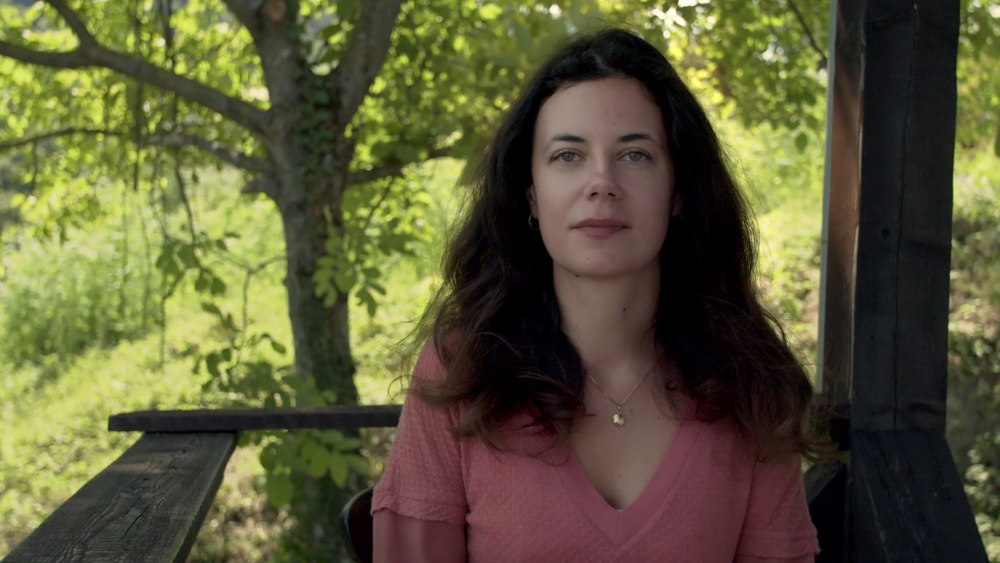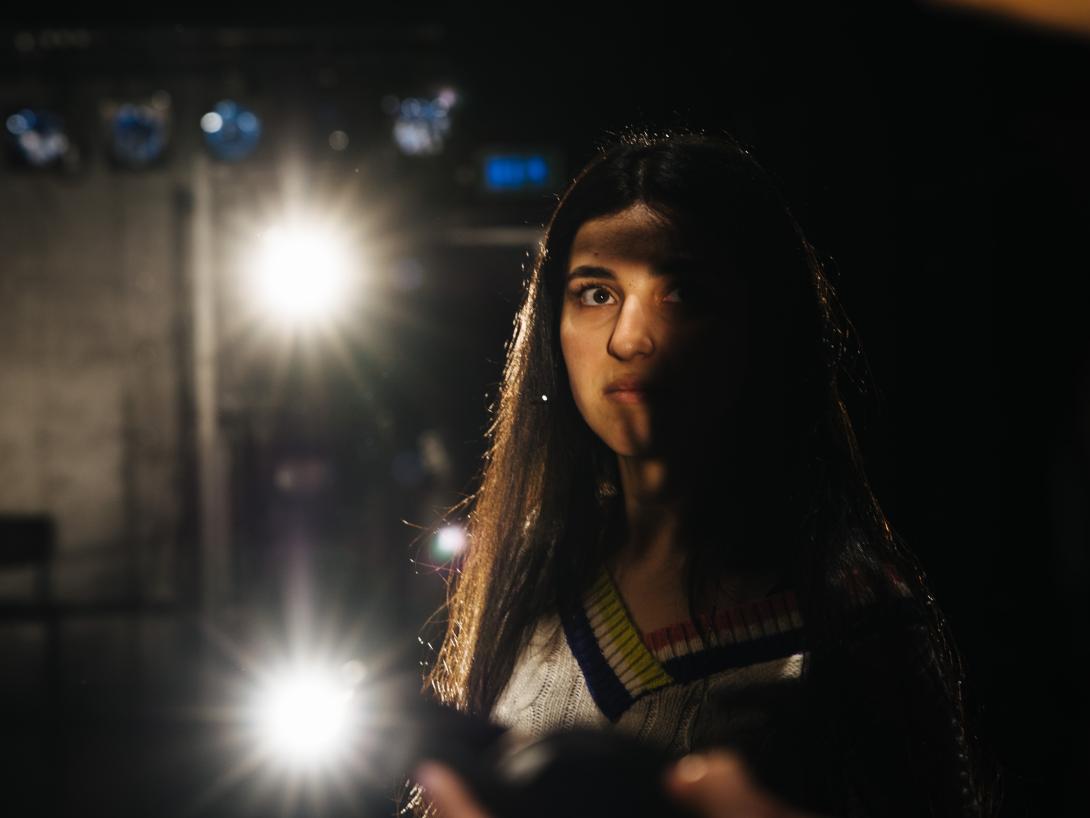Running through fire
an interview with Tea Tupajić
interview with Tea Tupajić, by Olivia Ebert, dramaturg at Münchner Kammerspiele. The interview took place four weeks before Licht I (23.02.2023) in Münchner Kammerspiele.
In Licht, Yezidi women tell their story on stage. What was the starting point for this project? Director Tea Tupajić tells you all about it.
The story of the Yazidi women has become a paradigmatic story of the crimes committed against the female body today. Whereas women have been used as spoils of war since time immemorial and rape has often accompanied conflict in history, the use of sexual violence as a systematic intimidation tool mostly emerged in the 20th century. Largely due to the weak policies of the United Nation Security Council, systematic sexual violence still lacks proper juridical procedures.
I myself learned about the Yazidi genocide and the sexual violence and enslavement of the women like most people- through media. At that time, I was in the process of directing my first feature length film Darkness There and Nothing More. The film dealt with the Bosnian war of my childhood. I felt that, after the film is done, I can liberate myself from the specific punishment (consisting of dwelling into wars, massacres and horrors) that I have sentenced myself to in order to pay the debt of my survivors' guilt and make some sense out of my life. I had enough and wanted to dedicate myself to growing figs in my garden.
It was then that, on a lazy afternoon of googling, I discovered "Questions and Answers on Taking Captives and Slaves". I didn't spend much time with it, I remember getting slightly nauseous, but moving on with my Sunday plans. It kept coming back to me during the week, while I was having a walk, doing the dishes, riding a bus… It stayed with me like a numb pain until it increased and before I knew it, it was not my time of the month, but the pain turned into bleeding.
I myself never experienced rape or any kind of sexual violence, but still it touched some pain inside of me that I couldn't name.
I quietly decided to trust it and explore where it could lead me.
You often work with documentary forms, both as a film director and in theater. Why did you choose theater as your medium this time?
When I was meeting the women for the first time, the most challenging question to answer was "Why Theatre?". I always responded that despite all the media attention, I don't believe the world has really heard their story and that their story can only be heard through experiencing it in the body. That theatre is perhaps the only space where one can actually hear the story. It is exactly theatre, as a medium in which a living being shares her/himself with another living being, that is the only space which can create the encounter so intimate you can‘t look away, like Ingmar Bergman says. It is a space of deep listening, where the spectator also becomes a witness.
I had ethical questions to myself. I didn't know if I am not about to deliver the women to their nightmare just because I believe that we find meaning and transcendence of those nightmares by transforming them into a piece of art. And who cares about art anyway? Moreover, I think that theatre has nothing to do with therapy, nor with creating a safe space.
I found some answers in realization that it seems to be a curious tie between theatre and mortality.
On the one hand side, theatre is the utmost expression of the banality and futility of our lives.
What's on the other hands side, we don't know. Maybe that is what I'm searching for in Licht.
The project requires a great deal of sensitivity and flexibility from the theater. How do you organize the collaboration?
Quite early in the process of preparing the production concept, I made a decision for this work to be produced and presented by theatres and festivals with a female artistic director. I didn't frame our collaboration overly strictly beforehand, with plans for big symposiums and manifestos. I rather wanted to foster a situation in which we can learn from each other and collaborate, and trusted that the right format will reveal itself.
As part of the process, we invited all the colleagues of Münchner Kammerspiele to together create a proscenium curtain. On the curtain, they embroidered by hand the stellar constellation of the sky in the night of the premiere. In each star, one person embroidered an image of that what is inside of them, that could have killed them. The process of creating it was a touching experience of spending time together and sharing personal stories.
How do you rehearse this work, how do you prepare the performance?
In a sense, our process resembles one of those processes of preparation to run through fire.
The running itself is not rehearsed, it happens in the performance.
Early on, our production leader and dramaturge Katrina Mäntele suggested that we should forget the word rehearsal, and use the word preparation instead. So, after three years of different preparations, I'd say that we are almost ready for the unknown to happen on February 23rd.

